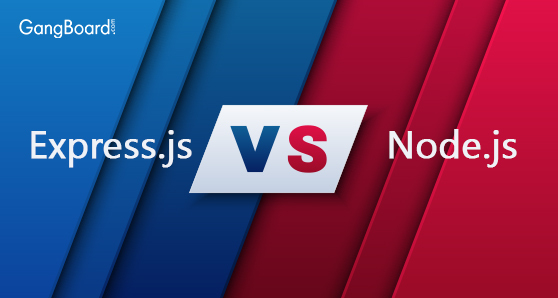
Express.js Vs Node.js
What is Express.js?
Express.js is a small Node.js framework of web application. It offers a vigorous collection of topographies for both mobile and web applications. Node.js foundation has provided an open source framework with Express.js. It delivers a trifling interface to create applications. It offers you the implements that are compulsory to build an app. It is elastic in a way that there are many components accessible on npm (package manager), which are directly persevered into Express.js.
One drawback of JavaScript, most commonly found, is that it supports client-side scripting, server-side workings of any website were conventionally written in some other programming language. Then Node.js provided server-side run-time setting with JavaScript and it permitted JavaScript execution on server side too. This competence is invaluable. To make the responsibilities of developers more suitable, numerous JavaScript contexts to melodramatically cut codes in addition to decreasing coding times have been created. Express.js is one such framework.
Features of Express.js
Server – Side programming:
Express.js uses many Node.js features to call functions anywhere. Many multifaceted tasks that take numerous lines of code and hours of programming in Node.ja can be written in less number of lines and in a few minutes.
Page state retention:
Express.js allows preserving page state using routing through their URLs. You can share this URL with different users, even if you make changes, these URLs will take the user to the same page state it had when you shared it.
Error-fixing:
Bugs and errors in any application can cause whole application to breakdown. Their identification is very crucial task. Express.js offers an easy mechanism to let you quickly locate which are of the application is causing bugs.
Dynamic content:
Templating engine of Express.js offers provision of having dynamic content on web page using HTML templates. It takes so much pressure off of the client side which deals with hardware specifications too.
What is Node.js?
Node.js is a library for execution of JavaScript applications external to the browser. It comes to use when you want to create server-side programs or network a web application. Its elementary modules are inscribed in JavaScript. It is mostly used for server applications in real-time.
Node.js allows JavaScript to execute locally on a machine or a server. Formerly, before Node was introduced execution of JavaScript was not imaginable on system because it remained client side language or browser-based Language. It was only useful for creation and control of DOM elements.
Node.js provides many frameworks to use e.g. koa, hapi etc. One of such frameworks is Express.js. It is more useful and popular than other frameworks of Node.js.
Features of Node.js
Event Driven Input and output:
APIs of Node.js are non-blocking. It means server will not wait for the return of data from an API. Instead it will move to another API.
Single threaded:
js follows a single threaded model with event looping.
Scalability:
NodeJS is exceedingly scalable for the reason that server responds in non-blocking way.
Zero Buffering:
Applications at no time buffer data in Node.js. They only output the statistics in large pieces.
Community:
Node.js supports open source tribe. This is the only reason that many marvellous modules have been added to Node.js applications over the time.
Express.js Vs Node.js
Feature |
Express.js |
Node.js |
|
Common usage |
1. It is used to build web-apps using approaches and principles of Node.js. 2. It can be used to create APIs in Node.js. |
1. It is used to build server-side, input-output, event driven app. 2. It is best suited to make a web server, chat app etc. |
|
Level of features |
It has more features than Node.js because it adds functions to Node.js’s already existing functions |
It has fewer features than Express.js |
|
Coding time |
Very less coding time |
More coding time as compared to Express.js |
|
Building block |
It is built on Node.js |
It is built on Google’s V8 engine |
|
Requirement |
Node is required for Express. |
Express is not required for Node. |
|
Written in |
JavaScript |
C, C++, JavaScript |
|
Framework/Platform |
Framework used for Node.js |
Run-time platform or environment designed for server side execution of JavaScript |
|
Controllers |
Controllers are provided |
Controllers are not provided |
|
View Model |
Supports view model |
Doesn’t support it |
|
Routing |
Is provided |
Is not provided |
|
Middleware |
Uses middleware for arrangement of functions in a systematic way |
Doesn’t use such provision |


 +1 201-949-7520
+1 201-949-7520 +91-9707 240 250
+91-9707 240 250